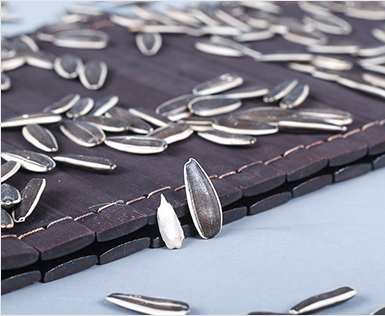-
 Afrikaans
Afrikaans -
 Albanian
Albanian -
 Amharic
Amharic -
 Arabic
Arabic -
 Armenian
Armenian -
 Azerbaijani
Azerbaijani -
 Basque
Basque -
 Belarusian
Belarusian -
 Bengali
Bengali -
 Bosnian
Bosnian -
 Bulgarian
Bulgarian -
 Catalan
Catalan -
 Cebuano
Cebuano -
 Corsican
Corsican -
 Croatian
Croatian -
 Czech
Czech -
 Danish
Danish -
 Dutch
Dutch -
 English
English -
 Esperanto
Esperanto -
 Estonian
Estonian -
 Finnish
Finnish -
 French
French -
 Frisian
Frisian -
 Galician
Galician -
 Georgian
Georgian -
 German
German -
 Greek
Greek -
 Gujarati
Gujarati -
 Haitian Creole
Haitian Creole -
 hausa
hausa -
 hawaiian
hawaiian -
 Hebrew
Hebrew -
 Hindi
Hindi -
 Miao
Miao -
 Hungarian
Hungarian -
 Icelandic
Icelandic -
 igbo
igbo -
 Indonesian
Indonesian -
 irish
irish -
 Italian
Italian -
 Japanese
Japanese -
 Javanese
Javanese -
 Kannada
Kannada -
 kazakh
kazakh -
 Khmer
Khmer -
 Rwandese
Rwandese -
 Korean
Korean -
 Kurdish
Kurdish -
 Kyrgyz
Kyrgyz -
 Lao
Lao -
 Latin
Latin -
 Latvian
Latvian -
 Lithuanian
Lithuanian -
 Luxembourgish
Luxembourgish -
 Macedonian
Macedonian -
 Malgashi
Malgashi -
 Malay
Malay -
 Malayalam
Malayalam -
 Maltese
Maltese -
 Maori
Maori -
 Marathi
Marathi -
 Mongolian
Mongolian -
 Myanmar
Myanmar -
 Nepali
Nepali -
 Norwegian
Norwegian -
 Norwegian
Norwegian -
 Occitan
Occitan -
 Pashto
Pashto -
 Persian
Persian -
 Polish
Polish -
 Portuguese
Portuguese -
 Punjabi
Punjabi -
 Romanian
Romanian -
 Russian
Russian -
 Samoan
Samoan -
 Scottish Gaelic
Scottish Gaelic -
 Serbian
Serbian -
 Sesotho
Sesotho -
 Shona
Shona -
 Sindhi
Sindhi -
 Sinhala
Sinhala -
 Slovak
Slovak -
 Slovenian
Slovenian -
 Somali
Somali -
 Spanish
Spanish -
 Sundanese
Sundanese -
 Swahili
Swahili -
 Swedish
Swedish -
 Tagalog
Tagalog -
 Tajik
Tajik -
 Tamil
Tamil -
 Tatar
Tatar -
 Telugu
Telugu -
 Thai
Thai -
 Turkish
Turkish -
 Turkmen
Turkmen -
 Ukrainian
Ukrainian -
 Urdu
Urdu -
 Uighur
Uighur -
 Uzbek
Uzbek -
 Vietnamese
Vietnamese -
 Welsh
Welsh -
 Bantu
Bantu -
 Yiddish
Yiddish -
 Yoruba
Yoruba -
 Zulu
Zulu
Jul . 29, 2024 05:32 Back to list
Exploring the Process of Producing High-Quality Sunflower Seeds for Sunflower Plants
Sunflower Seeds The Heart of Sunflower Manufacturing
Sunflower seeds are more than just a popular snack; they are a vital component of many industries, particularly in the realm of agriculture and food manufacturing. The process of sunflower seed production begins with the cultivation of sunflowers, which are admired not only for their striking beauty but also for their nutritious seeds. Farmers across various regions have recognized the potential of sunflowers, leading to an increase in plantation and production in recent years.
The sunflower (Helianthus annuus) is a vigorous plant native to North America, known for its large, bright yellow flowers that tend to turn and face the sun. This unique characteristic, known as heliotropism, captures the attention of many, but it is the seeds that are of great economic value. Sunflower seeds are packed with nutrients, including healthy fats, protein, vitamins, and minerals, making them an ideal snack as well as a key ingredient in various culinary applications.
Sunflower seed manufacturing begins with the planting of seeds in well-drained soil with ample sunlight. Farmers carefully monitor the growth conditions, including water supply, soil health, and pest control, to ensure a bountiful harvest. Once the seeds mature, they are harvested and processed to separate them from the flower heads. This processing stage is crucial, as it determines the quality and purity of the seeds.
After harvesting, sunflower seeds undergo several steps of processing, including cleaning, drying, and de-hulling. The seeds are cleaned to remove any dirt or debris, and then dried to reduce moisture, which can lead to spoilage. De-hulling involves removing the outer shell of the seeds, resulting in the edible kernel known for its satisfying crunch and rich flavor.
sunflower seeds on a sunflower manufacturer

The versatility of sunflower seeds is showcased in their various applications in food manufacturing. Roasted sunflower seeds are a favorite snack, often found in health food stores and supermarkets. They can be enjoyed plain or seasoned with salt, spices, or even coated in chocolate. Apart from snacking, sunflower seeds are used in granola bars, trail mixes, and baked goods, providing a nutritious boost to various recipes.
Sunflower oil, extracted from the seeds, is another significant product of sunflower seed manufacturing. It is known for its light flavor and high smoke point, making it a preferred cooking oil in many kitchens. Additionally, sunflower oil is rich in vitamin E and low in saturated fats, which contributes to its popularity among health-conscious consumers. Furthermore, the meal leftover after oil extraction is repurposed as animal feed, ensuring that nothing goes to waste.
The sunflower seed industry is also contributing to sustainability efforts. By promoting crop rotation and responsible farming practices, sunflower cultivation can enhance soil health and prevent erosion. Additionally, sunflowers are known to attract beneficial insects, helping to control pests naturally.
As global demand for healthy snacks and cooking oils continues to rise, sunflower seed manufacturers are focusing on innovation and quality. They are exploring new methods of extraction, packaging, and flavoring to meet consumer preferences while maintaining environmental responsibility.
In conclusion, sunflower seeds play an essential role in the manufacturing of not only tasty snacks but also quality cooking oils and animal feed. The intricacies of sunflower seed production—from cultivation to processing—underscore the significance of this humble seed in our daily lives. As the industry continues to evolve, we can expect sunflower seeds to further establish their presence in both health and culinary sectors, celebrating not only their nutritional benefits but also their contribution to sustainable agricultural practices.
-
Premium Melon Seeds - Healthy Crunchy Snacks AI Optimized
NewsAug.01,2025
-
Premium Biscuits: Luxury Packaging & Exquisite Taste
NewsJul.31,2025
-
Bulk Sunflower Seeds Exporter | Buy Wholesale Today
NewsJul.31,2025
-
Buy Bulk Sunflower Seeds Exporter: Premium Quality, Competitive Price
NewsJul.30,2025
-
Premium Macadamia Nuts - Fresh, Crunchy & Healthy Snack Choice
NewsJul.30,2025
-
Premium Biscuits Packaging – Elegant, Durable & Customizable Solutions
NewsJul.29,2025
